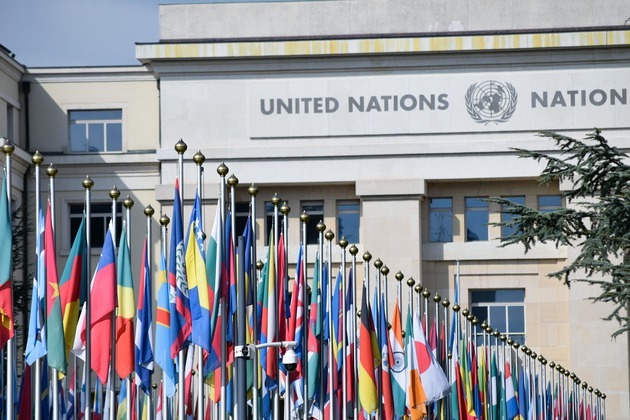Move FM Global News

Five nations elected to UN Security Council, Latvia joins first time
Jun 7, 2025NEW YORK CITY, New York: The United Nations General Assembly has elected five countries to join the Security Council starting January 2025, reaffirming its annual tradition of rotating non-permanent members on the 15-member body.
Bahrain, Congo, Liberia, Colombia, and Latvia secured seats in an uncontested vote by the 193-member assembly this week. This marks Latvia’s debut, which received 178 votes, while Bahrain led with 186.
Latvia’s Foreign Minister Baiba Braze called the win a moment of responsibility for her Baltic nation, saying, “Our historical experience puts us in the position to understand, empathize with, and forge partnerships across every region in the world.”
“We know the value of freedom,” she added. “We know the fragility of peace and the power of multilateralism to safeguard it.”
Bahrain will represent Arab nations. Foreign Minister Abdullatif bin Rashid Al Zayani emphasized the country’s resolve to contribute proactively to global peace. He highlighted the Israel-Palestine crisis as a regional priority: “The cornerstone for achieving peace in the region” is resolving that decades-old conflict.
The new term will also be Congo’s third on the Council. Foreign Minister Thérèse Kayikwamba Wagner said Congo’s presence reflects confidence in the country and a growing recognition of Africa’s role in shaping global security policy.
Liberia returns to the council for the first time since 1961. Deputy Foreign Minister Deweh Gray said Liberia’s election signals “an unwavering resolve to make a difference for all” and to represent Africa’s collective position.
Colombia’s Ambassador Leonor Zalabata urged unity in preserving human rights and the environment. “We invite you all to keep working in the path of human rights,” she said.
The Security Council is charged with maintaining international peace and security but remains hamstrung in major global conflicts due to the veto powers held by its five permanent members — the United States, Russia, China, Britain, and France.
The incoming five will replace Algeria, Guyana, South Korea, Sierra Leone, and Slovenia. Despite long-standing calls for reform, the Council’s structure — unchanged since 1945 — continues to face criticism for lacking permanent representation from Africa or Latin America.


